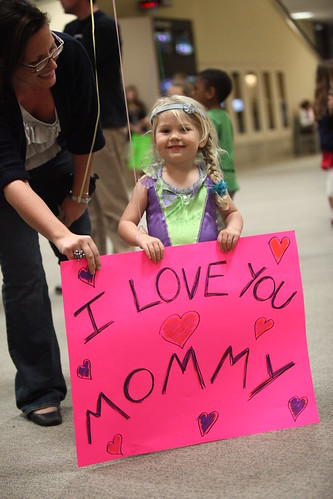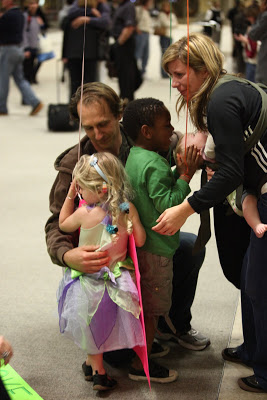


I have an irrational and driving need to appear capable and stoic. Sure, I mock my foibles in the little things from time to time, but in general I go to great lengths to avoid seeming flustered. I am like a duck who is gliding across the water, appearing graceful and effortless, all the while with two feet just under the surface, desperately paddling in circles to stay afloat. This tendency manifests itself in every situation, from the grocery store to the pediatrician’s office.
DON’T LET ON THAT YOU ARE A MESS. Keep the anxiety under the surface.
Except that, sometimes since that day in January of 2010 I am a mess. Frequently, in the last five years, I have been a mess. And pretending to not be a mess is really freaking exhausting, which has the affect of MAKING ME MORE OF A MESS. It also has the effect of confusing those around me . . . because I seem capable and calm in certain moments and then snap into an emotional wreck at any ill-timed provocation.
However, I continue in my charade because a) I am in a good bit of denial myself, and b) people don’t like a mess. Not for any length of time, anyways. There is a statute of limitation for what is acceptable for grief. My succession of miscarriages taught me this painful fact. One or two miscarriages? People are there for you. By five or six? People are uncomfortable. People stop calling. And you start to get the sinking feeling that people see you as a lot of work.
This is true for years away from earthquakes.
The statute of limitations for trauma that did not cause bodily harm or death? It is shorter.
I had no idea when I came home five years ago, shaken to the core and relieved to be home, that in five year’s time those feelings of panic and anxiety would have taken up residence in a deeper, more permanent spot in my psyche. I had survived! Surely this event would be a minor blip in my own lifeline . . . surely lasting trauma was only deserved for those who lost more.
I pushed the feelings aside, because I wanted to, because others wanted me to, and because I had no time to feel them, anyway. I fooled myself into thinking that the waves of anxiety were situational. I had a newly adopted son. I was still, technically, “post-partum” with my daughter. I was adjusting to life with four kids. Stress is inevitable, no?
And yet, I had the indications that this was more than stress. My thinking was cloudy. I was easily overwhelmed. I was incapacitated by noise, by surprises, by crowds, by chitchat. And I was experiencing sensory issues with anything that reminded me of the earthquake. The loud rumble of the neighbor taking out the trashcans sent me into a spiral. The sensation of a person shaking their foot in a seat next to mine could make me come unglued. The sound of the dishwasher switching cycles . . . the sensation of being under someone running on the second floor. . . the “trauma clues”, as we therapists say, we there.
I didn’t want them to be there, and I didn’t want others to see it, so I hid out in my house. Because I get just how rude and/or distracted and/or negative and/or overly sensitive I can seem to others. I knew I was incapable of possessing the traits of friendliness that are important to me and valued by others. And I would rather not be seen at all, than be seen as self-absorbed or aloof or depressive. It was too exhausting to explain myself to others . . . too tedious to continually remind people that I’m still compromised.
“How are you?”
When the answer to that question continues to be negative . . . when people seem disappointed and irritated when it remains stagnant. . . it gets easier to lie. Or to avoid situations where I’m asked.
Because the only fear I have greater than seeming like a mess? Seeming like a burden.
So after the earthquake, I stayed home, and I withdrew. I avoided obligations or crowds or variables. Because I would rather my kids be a little bored than have them see me overwhelmed.
I would rather turn down a playdate than act like a weirdo at a playdate. It’s easier to control my environment at home.
It’s gotten better over the past five years. I’ve found a new normal. I no longer feel shell-shocked or hyper-vigilant. But I am different. That panic is right under the surface.
It’s like Flowers for Algernon. I never know when I’m going to be my normal self, or an overwhelmed, “pretending to be present” version of myself. But after the fact, I can recall with perfect clarity the ways I have been awkward or insensitive or just plain weird.
Emotional trauma is tough to recover from, because the wounds are real but they are invisible. I remember wishing I could somehow wear a sign that reminded people that even though I was home and had my little airport reunion, I was still a mess. Even still, I sometimes feel the urge to tell people, “I’m sorry I’m not totally normal. Something happened that I can’t quite recover from.”
Maybe that’s what this post is for,
